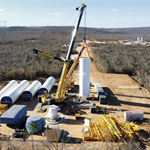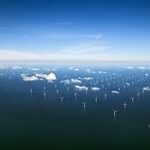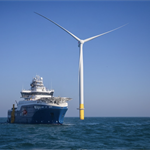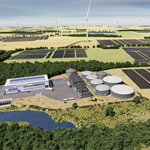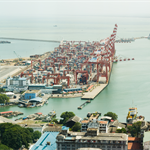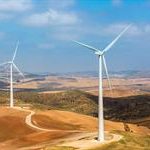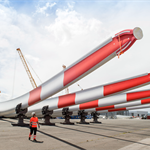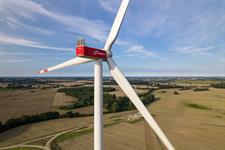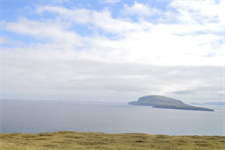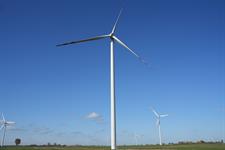SSE plans to produce green hydrogen at Scottish onshore wind farm
Energy Disrupter
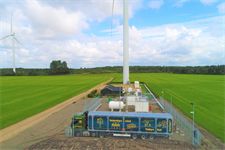
SSE Renewables and Siemens Gamesa Renewable Energy (SGRE) have unveiled plans to produce and deliver green hydrogen through electrolysis at SSE’s 110MW Gordonbush onshore wind farm in the Scottish Highlands.
The green hydrogen produced by using SGRE’s renewable hydrogen upgrade solution could be used as an alternative to petrol, diesel or natural gas to help decarbonise hard-to-abate sectors such as industry, transport and manufacturing.
The move follows last year’s agreement between the two companies to explore opportunities to produce green hydrogen at onshore wind sites.
Siemens Gamesa has been running a hydrogen test site at Brande, Denmark, since early 2021 to work on the optimisation of the wind turbine, electrolyser and battery system.
SGRE’s renewable hydrogen upgrade facility would be capable of producing up to 2,000 tonnes of green hydrogen each year using wind energy generated at Gordonbush. The development would also include a battery energy storage system capable of storing any surplus energy produced by the wind farm.
Stored energy can be used to power the electrolyser for green hydrogen production or to dispatch to the national grid when needed.
The project will also see SSE Renewables working to explore opportunities in Scotland’s emerging green hydrogen economy.
“With this development at Gordonbush, we’ll be able to divert some of our abundant wind resource in the Highlands to begin production of a locally sourced low-carbon fuel for transport and heavy industry, develop a green hydrogen supply chain to support local job creation, and play our part in supporting Scotland’s emerging green hydrogen revolution,” said Annant Shah, director of strategy and route to market at SSE Renewables.
The Highland Council is considering a screening request submitted by SSE Renewables for the proposed development. A local public consultation will be held in April to gather community and stakeholder feedback which will help inform final detailed project designs.
A final construction permit application for the proposed electrolyser development is expected to be submitted to the council this summer, while a separate application will be made for the associated lithium-ion battery energy storage system.


